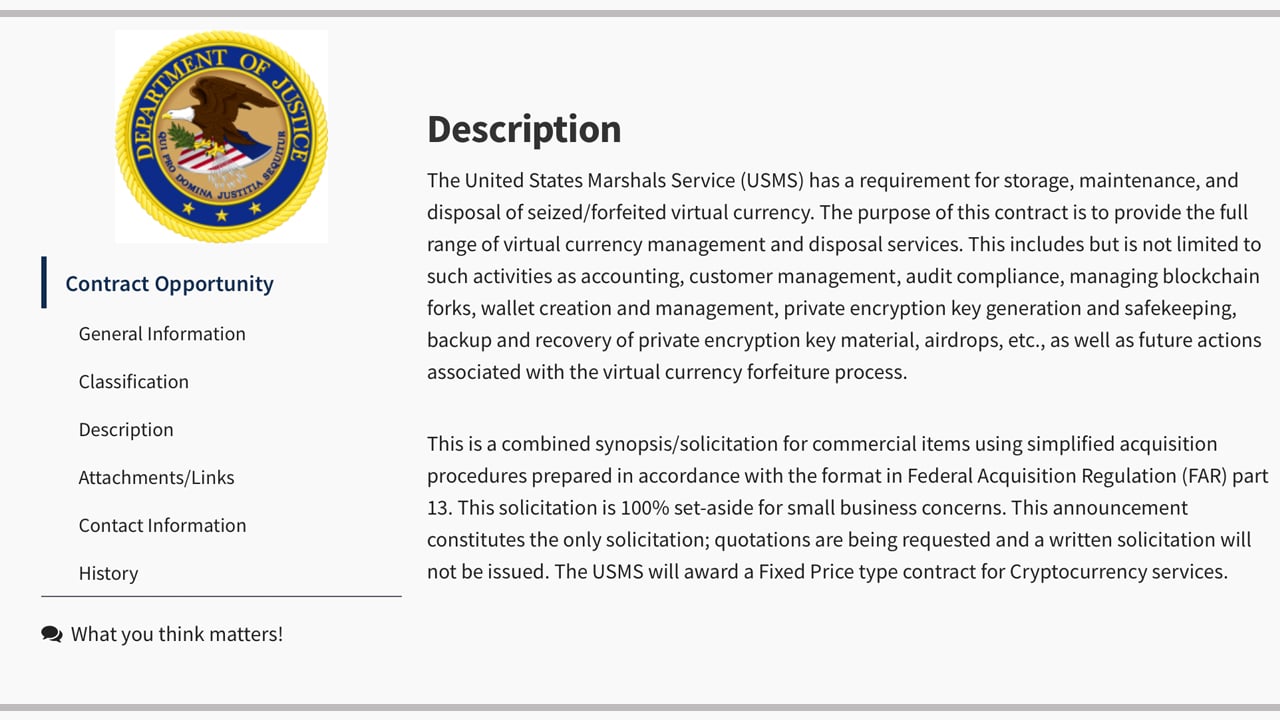The blockchain intelligence and surveillance company Chainalysis revealed the launch of a new program that aims to help governments and insolvency practitioners sell seized cryptocurrencies. The news follows the recent U.S. government seizure of more than 69,000 BTC worth over $1 billion on November 3.
Blockchain surveillance firm Chainalysis announced the launch of a new program that caters to recovering, storing, and selling crypto assets that have been seized by law enforcement officials.
“[The] asset realization program [will] help government agencies and insolvency practitioners handle, store, realize, and monitor seized assets,” Chainalysis said on Thursday.
Chainalysis explained that when law enforcement is working with illicit cryptocurrency assets oftentimes the entity will need to not only seize the crypto, but also have to store them until legal forfeiture.
The company believes licensed professionals, insolvency practitioners, and governments worldwide will need a reliable program that can be a “safe way to track, store, and ultimately sell seized cryptocurrency assets for fiat currency.”
“As cryptocurrencies become more mainstream, they will increasingly be used by good and bad actors alike,” Jason Bonds, the chief revenue officer at Chainalysis said on Thursday. “Chainalysis is dedicated to building trust in digital assets, and that means helping to detect and investigate illicit activity. As our government partners become more successful in rooting out bad actors, assisting them with asset recovery and realization is a natural next step.”
The Chainalysis announcement also notes that the company has partnered with a firm called Asset Reality. The asset consultancy service Asset Reality manages seized crypto assets and the firm works with global law enforcement handling “complex assets.”
The announcement also details that Chainalysis helped U.S. law enforcement “identify and investigate the cryptocurrency wallets used” in the recent Silk Road bitcoin confiscation.

The introduction of the new program offered by Chainalysis follows U.S. law enforcement agencies such as the Department of Justice and the U.S. Mashal Service asking for help storing seized cryptocurrencies.
During the Silk Road auctions years ago, the U.S. Marshals were in charge of storing and auctioning the cache of bitcoins confiscated. However, in April 2020, both agencies published a request for the “storage, maintenance, and disposal of seized/forfeited virtual currency.”
What do you think about Chainalysis and the recent program to store and sell seized crypto assets? Let us know what you think about this subject in the comments section below.
Image Credits: Shutterstock, Pixabay, Wiki Commons, US Marshals, DoJ, beta.sam.gov,
Disclaimer: This article is for informational purposes only. It is not a direct offer or solicitation of an offer to buy or sell, or a recommendation or endorsement of any products, services, or companies. Bitcoin.com does not provide investment, tax, legal, or accounting advice. Neither the company nor the author is responsible, directly or indirectly, for any damage or loss caused or alleged to be caused by or in connection with the use of or reliance on any content, goods or services mentioned in this article.

